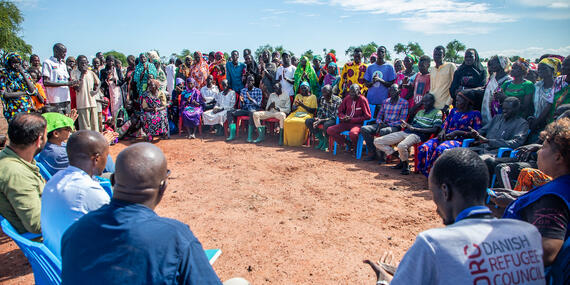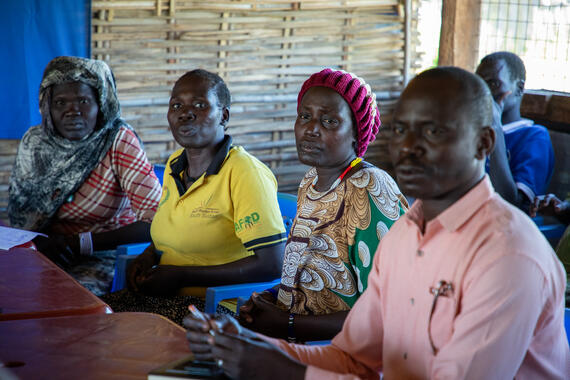
Launched in 2023, the Flagship Initiative aims to transform humanitarian action by organizing assistance around the priorities of crisis-affected communities rather than aid providers. This, the...

The Flagship Initiative was launched in 2023 to redesign humanitarian action from the ground up. One year into its implementation, in the four pilot countries of Colombia, Niger, the Philippines, and South Sudan, the initiative is shifting the drivers of humanitarian action, organizing assistance around the priorities of crisis-affected communities rather than the priorities of aid providers.
Based on the Flagship Initiative’s first global learning report published by the Institute for Development Studies in March 2024, there are clear areas of convergence emerging from the four pilot countries. Collectively, the four pilot countries are on the cusp of a new approach to humanitarian action, one which:
“We want to move towards a community-centered, nationally-led humanitarian system that builds on existing capacities and reduces over time the need for humanitarian support and funding” – Mireia Villar Forner, UN Resident and Humanitarian Coordinator, Colombia

Despite the vastly different operational contexts and unique challenges faced in each country, the Flagship Initiative has identified five common evolving elements that are transforming the way humanitarian responses are programmed and delivered. These elements, emerging over the past 18 months, are reshaping the humanitarian landscape, moving away from standardized, top-down approaches towards more community-centered, locally-driven solutions.
The Flagship Initiative approach is revolutionizing humanitarian action through five key elements:
Find out more about the Flagship Initiative’s evolving approach.
The Flagship Initiative is an exploratory process: some approaches will work, others will not. The aim is to understand why and, where desirable, how approaches can be replicated and brought to scale. To do so, an external rigorous learning and evaluation function has been engaged to support pilot countries to learn from setbacks, identify promising new approaches, and develop them for replication in other contexts. Following the publication of the Flagship Initiative’s First-Year Learning Report, the first Global Learning Forum was held in Luxembourg in March 2024. You can find a summary of the discussions in our Global Learning Forum Report.
Colombia + 3 more
Other
Launched in 2023, the Flagship Initiative aims to transform humanitarian action by organizing assistance around the priorities of crisis-affected communities rather than aid providers. This, the...
Colombia + 3 more
Evaluation and Lessons Learned
Lewis Sida, Philip Proudfoot, Mariah Cannon, Mónica Almanza, Manual De Vera, Nyachangkuoth Rambang Tai In 2023, the Flagship Initiative was launched as a radical shift in humanitarian coordination...
Colombia + 3 more
Other
The Flagship Initiative, launched in 2023, aims to address long-standing challenges in the humanitarian system, including the growing number of protracted crises, the systematic disregard for the...
Colombia + 3 more
News and Press Release
Reimagining Humanitarian Action Humanitarian emergencies are becoming more frequent, complex, and protracted. At the same time, the humanitarian operating environment is becoming more...